| Zeitschrift Umělec 2005/1 >> Optimalization Whiz | Übersicht aller Ausgaben | ||||||||||||
|
|||||||||||||
Optimalization WhizZeitschrift Umělec 2005/101.01.2005 Denisa Kera | profil | en cs |
|||||||||||||
|
Interview with Mária Rišková
Mariša, when did you decide to promote art linked with new technologies in Slovakia? Denisa, as with any appropriately egotistical individual being interviewed, who has to put the journalist right, I am going to diss that question (don’t take it personally, that’s my way of getting over my initial shyness before opening up). It was not and is not a decision, but rather logical continuation of what I do. It’s probably my momentarily desired professional specialization that I came to in various ways from my art history studies. Maybe it’s a long-term thing. You wouldn’t believe it: I was saying in my first year that my main interest was the Vikings! When I think about it now, I imagine that what we are talking about is just as romantic and adventurous a subject as the Vikings, but people who consider technologies to be sterile and depersonalized might wonder. Promote? In Slovakia? Oh come on! I’d never have undertaken such a Sisyphean task. The Slovaks are so stubborn that they need to discover everything for themselves; you need access to commercial TV equipment to get anything into their heads (You see, I’m finally coming to your question). What’s more, promotion is very closely associated with propaganda and my approach to new technologies in art—meaning to new media—is too critical for that. One should only promote something that is so unreservedly positive that it is unable to promote itself, such as non-smoking, like tolerance. Since digital technologies have no problem reaching users, the way has already opened up—the sellers will take care of that. As such, artists are also consumers, and everyone has to find a way to their own technology. I am more intrigued by the transformation of aesthetic categories. Indeed, the way we are attracted to the moving image and the screen is fascinating, how we long for or refuse to be engulfed by something the moment we see it. At least when it is about visual art and new media art. But the thing I want to understand, lies somewhere else—recently I define it for myself as an interest in the life on the net – any of them. There are many of those around us and in us. When? I already said when it happened, but there is one specific moment when I began to devote myself to this field much more intensely. That was in the fall of 2001, at a workshop in Labina, Croatia, where I met dozens of people from all over the world who were setting up servers and medialabs, streaming and playing on laptops. It no longer seems so strange, but three years ago that was a significantly strong impulse. Even though I had already spent several months working in Buryzone before that, where I had various experiences, this meeting was very influential, and even now it is clear to me that it pushed me forward on this logical journey. What do you like doing most? It may sound trite but it needs to be said: I like most living and contemplating. Usually you walk, chat with people, travel, sleep, and sometimes you purchase something, and between all these things you keep on contemplating. Sometimes you let somebody know what’s on your mind, otherwise you just let your thoughts wander. Work is an inseparable part of this kind of life. And it is enjoyable to live on the edge where you can encounter various situations in which people around try to find ways to figure you out but still don’t get it. It’s really great. Recently I’ve been amusing myself with a single word: optimalization. It’s great to optimalize activities without expending too much energy in the process (our provider would even like to optimalize the way his shoes are tied, but he is an extreme case). Some things need to be optimalized to conserve energy, so that time can be invested into thinking and other things we like, the people around us, or we can just leave them to wander, they can’t get lost, can they. Optimalization is also associated with the enjoyable process of seeking out new solutions or solutions of any kind, for that matter; but I’d rather not discuss that, considering my current managerial life and its tendency towards routine solutions. Can you describe the most interesting performance or action which you organized in Buryzone or now in Burundi or A4? The first one is a staged S & M performance in old Buryzone, but I’m not going to describe it for you. I could tell you about it, though, if you are interested. Why do you pick such strange names like, Buryzone, Burundi? That’s funny. And what’s more, our friends are with the STUPIDesign and my latest trade license is listed as Mgr. Mária Rišková Workaholic Culture. Burundi’s full name is longer to include our action units: Burundi Datalab Studio Display Press. As few people have heard about the existence of that African country, one which endured a horrible exodus a decade ago, this is our mini-tribute to the propagation of the interests of non-European-American problems and conditions. What is your relation to the computer? What is the computer for you? What are you doing when you are not working on the computer? It is primarily my working tool, a means of communication. It is my larger, but perhaps more naive memory. They always work together. It always works in combination with other media, I have various ways of saving data and I work with them later on the computer, with whose help I solve many things associated with work. It is indeed an extension of me. I frequently carry my laptop with me and it helps me. But I don’t have any kind of addiction to the machine that would be of interest to the reader. I do, however, have a reflex when I get up in the morning: I automatically push the start button on the way to the toilet. And I talk to it, yes, that’s the truth; I don’t speak, say, with the fridge. A few years back, when my hard disc in my old desktop was destroyed, I was desperate; but that was more ‘cause of the data loss and disrupted work. I have a somewhat more personal relationship with my current iBook (I really ought not say “current,” or it will think there will be some successor). In fact, computers are still very limited and limiting devices; but still, that which the artificial can do is really fascinating. I find the stereotypical position of a computer slave tiresome: crooked legs, stiff neck, fixed gaze and clicking away. I would have liked to have realized some of those sci-fi ideas for multimedia offices and intelligent houses that are already in the hands of designers and are being tested in various places. Although in the first phase my room would only change in that the mess would be not only on the floor but also on the walls and in the air, just the same as what’s on the floor now. What do I do when I am not on the PC? I am in a pub or asleep at home in the Carpathian mountains. In 2005 you organize another big festival of digital art and culture, tell us something about it. That’s Multiplace, in late April. More of us are involved organizing it; there are always more groups and people who plan and put together actions and projects in this field. It’s a pretty lively event. I think it’s great that it doesn’t attempt to mimic the structures of massive centrally organized new media festivals; there are already enough of them. Multiplace is expanding spontaneously; next year it won’t be just in Slovakia but also Prague, Brno, Vienna, maybe also in London and Delhi.
01.01.2005
Empfohlene Artikel
|
|||||||||||||
|
04.02.2020 10:17
Letošní 50. ročník Art Basel přilákal celkem 93 000 návštěvníků a sběratelů z 80 zemí světa. 290 prémiových galerií představilo umělecká díla od počátku 20. století až po současnost. Hlavní sektor přehlídky, tradičně v prvním patře výstavního prostoru, představil 232 předních galerií z celého světa nabízející umění nejvyšší kvality. Veletrh ukázal vzestupný trend prodeje prostřednictvím galerií jak soukromým sbírkám, tak i institucím. Kromě hlavního veletrhu stály za návštěvu i ty přidružené: Volta, Liste a Photo Basel, k tomu doprovodné programy a výstavy v místních institucích, které kvalitou daleko přesahují hranice města tj. Kunsthalle Basel, Kunstmuseum, Tinguely muzeum nebo Fondation Beyeler.
|







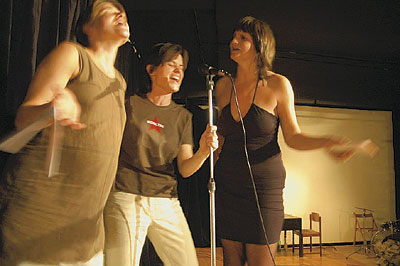
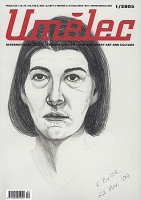






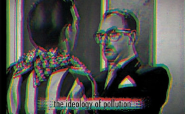
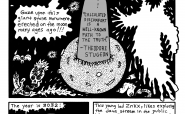
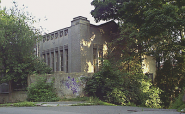
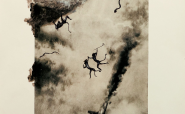
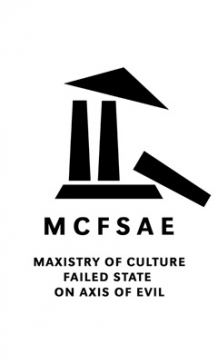











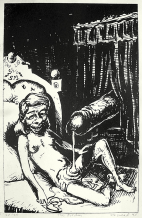
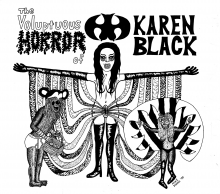
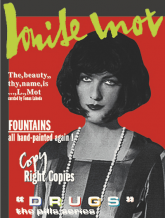



 We Are Rising National Gallery For You! Go to Kyjov by Krásná Lípa no.37.
We Are Rising National Gallery For You! Go to Kyjov by Krásná Lípa no.37.
Kommentar
Der Artikel ist bisher nicht kommentiert wordenNeuen Kommentar einfügen